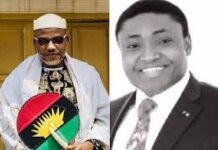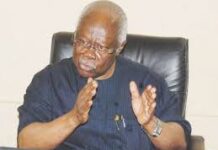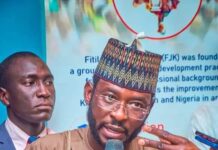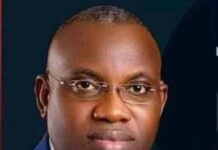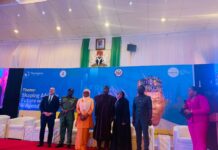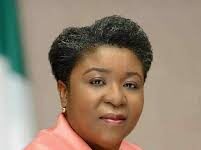Zoning Conundrum Resurfaces
Raymond Mordi, Deputy Political Editor
POLITICS DIGEST – Following the death of former Head of State General Sani Abacha on June 8, 1998, under mysterious circumstances and the emergence of General Abdulsalami Abubakar as his successor, Nigeria was at a crossroads. The world waited with bated breath to see how Nigerians would react to the change of guards at Aso Rock, the federal seat of power. The crisis of credibility created by the annulment of the June 12, 1993 presidential election and the circumstances surrounding the death of the winner of the election, Chief Moshood Abiola weighed heavily against the new military regime.
Thus, he was anxious to win the support of the populace, to legitimize his regime because Nigeria under the late Abacha had become a pariah state. As a result, he promptly announced plans to conduct elections and return the country to civilian rule within a short period. As one of the ways to inspire faith in the process, many key figures imprisoned by the late General Abacha under trumped-up charges were released.
Among them was former Head of State, General Olusegun Obasanjo, who had retired in 1979. Obasanjo’s profile, as an internationally acclaimed statesman from the Southwest and a former military ruler who handed over to an elected government, suited the designs of the new military regime and it exploited it. As a result, Obasanjo was picked as the presidential candidate of the Peoples’ Democratic Party (PDP), to appease the Southwest for the annulment of the June 12, 1993, presidential election.
Zoning of the presidency to the South and the Southwest in particular, therefore, was foisted on the polity by the military when the country returned to civilian rule in 1999. Obasanjo, who was released from the Yola prison alongside other high profile political prisoners, was believed to have been drafted into the race by the military. Indeed, the people of the Southwest made it clear that he was the candidate of the military and the northern political oligarchy and they did not vote for him in the election that brought him to power in 1999. Against this background, the responsibility of governing the country was suddenly thrust on Obasanjo’s shoulders. He had been sentenced to life imprisonment in 1995 by the Abacha junta after he was tried by a military court on trumped-up charges of felony and conspiracy to overthrow the Abacha government, an allegation he vehemently denied with evidence.
Chief Olu Falae, former Secretary and later, Finance Minister in the military government of Ibrahim Babangida, who is also from the Southwest, contested against Obasanjo on the joint ticket of the Alliance for Democracy (AD) and the All Peoples’ Party (APP). Falae was the choice of the Southwest and the region voted for him massively during the election. But, the odds were stacked in favour of the PDP candidate because he was the one that had the blessing of the military establishment.
Read Also:
The military had to appease the Southwest, following the death of Abiola, who is today recognised as the supreme martyr of the June 12 struggle; the one who laid down his life for the survival of democracy in Nigeria. Abiola’s death, under controversial circumstances after drinking the now-famous cup of tea, threw the country into turmoil. His death shocked and saddened many Nigerians because in their opinion the country had come close to experiencing true democracy through valid elections for the first time in its history. He paid the supreme price for democracy when he refused to trade-off his mandate for freedom. The military authorities did all they could to buy off that mandate but Abiola would not budge. As a result, he was incarcerated for many years, held incommunicado and subjected to a harrowing experience, but he refused to succumb. He was pressurised, begged and threatened, but he would simply not exchange his mandate for personal freedom.
The military ensured, through the former ruling party, that the policy of power rotation or zoning is entrenched in the politics of the Fourth Republic, to reassure the other parts of the country. It achieved this by making sure that power rotation or zoning is entrenched in the party’s constitution. The idea was to rotate key positions, such as that of the President, the Vice President, the Senate President and his vice, the Speaker of the House of Representatives and his deputy, the Secretary to the Government of the Federation, so that they will be occupied by people from different states and geopolitical zones. Power rotation or zoning dates back to the Second Republic when the defunct National Party of Nigeria (NPN) introduced it as a strategy for the reunification of the country after the civil war. Article 21 of the party’s internal rules and regulations introduced it into Nigerian politics.
After his failed third term bid, Obasanjo handpicked Umaru Yar’Adua as his successor, in line with the zoning. Unfortunately, the former Katsina State governor was battling a debilitating illness at the time, unknown to many Nigerians. His slow pace of governance at the time was a big issue. But, with the benefit of hindsight, he did well within the short time he was in charge of the affairs of the country. It was his untimely death in 2010 that truncated the arrangement that would have allowed the North to control the presidency for eight years. The death of Yar’Adua elevated his deputy, Goodluck Jonathan to power. The emergence of Jonathan was initially accepted as a fortuitous event that no human being can be held responsible for; over which no one had any control.
But, Jonathan committed a grave error, which he paid dearly for later when he decided to vie for a second term, even though it was within his rights. Nigerians initially perceived the emergence of Jonathan as an opportunity to break the “paddy-paddy” arrangement introduced by the military and usher in a government that would truly enjoy the support of the people. As a result, he enjoyed pan-Nigerian support in the 2011 presidential election, including a large chunk of the North. If he had seized the opportunity to correct some of the ills in the Nigerian political system and bow out gracefully after serving his first term, he would have left a beautiful legacy. However, he reneged on the unwritten agreement he entered into with stakeholders in the North, with his decision to seek re-election in 2015.
This offended the sensibility of most northerners in 2015 and it was this factor that propelled General Muhammadu Buhari to power; a factor described as the Buhari tsunami. The entire North, irrespective of party affiliation, voted for the retired General, to ensure that power returned to the North.
Zoning has the good, the bad and the ugly sides to it. Such an arrangement may not be the best, as far as democracy is concerned. But, the arrangement seems to give Nigerians a sense of belonging at the moment. For instance, many are not happy with the long occupation of the seat of power by persons of northern extraction, both in military and civilian gabs over the years and the tendency of the northern elite to see the leadership of the country as their birthright. Unfortunately, the prevailing attitude within the two major political parties at the moment on power rotation in the next general elections suggests that politicians have not learnt from past mistakes. It appears like a quest by the North to hang on to power beyond 2023 and this may jeopardise the unity of the country.








